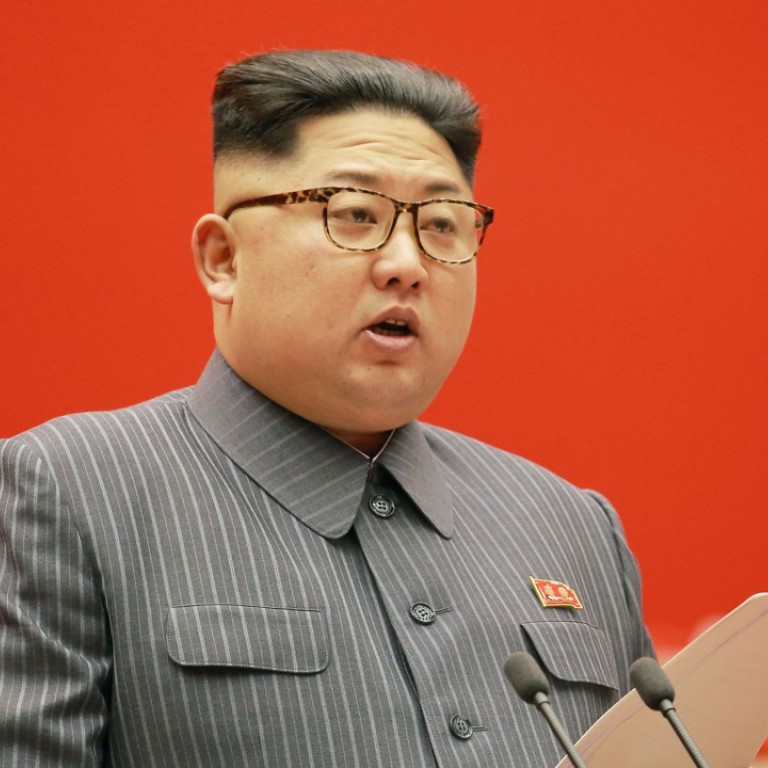
North and South Korea target January 9 for first official talks in more than two years
The increased momentum for inter-Korean dialogue follows a year of missile and nuclear tests by North Korea as well as an exchange of bellicose comments from Trump and Kim
North and South Korea will hold official talks next week for the first time in more than two years after Pyongyang accepted Seoul’s offer for dialogue, just hours after the United States and South Korea delayed a joint military exercise.
The South’s unification ministry said North Korea had sent its consent for the talks to be held on January 9 in a statement. The last time the two Koreas engaged in official talks was in December 2015.
The talks will be held at the border truce village of Panmunjom and officials from both sides are expected to discuss the Pyeongchang Winter Olympics and the improvement of inter-Korean relations, ministry spokesman Baik Tae-hyun told a regular briefing.
North Korea asked for further negotiations regarding the meeting to be carried out via documented exchanges, Baik said. The officials to represent the two Koreas have yet to be confirmed.
The spokesman added there was no change to South Korea’s stance that efforts aimed at the denuclearisation of North Korea should be continued, while Seoul would engage Pyongyang as it keeps close communications with the United States and allies.
Watch: How do North and South Korea communicate?
North Korea’s leader Kim Jong-un opened the way for talks with South Korea in a New Year’s Day speech in which he called for reduced tensions on the Korean peninsula and flagged the North’s possible participation in the Winter Olympics.
But Kim remained steadfast on the issue of nuclear weapons, saying the North would mass produce nuclear missiles for operational deployment and again warned he would launch a nuclear strike if his country was threatened.
US President Donald Trump and his South Korean counterpart Moon Jae-in announced late on Thursday that annual large-scale military drills usually held in spring would now take place after the Winter Olympics scheduled for February in Pyeongchang.
The North sees these drills as exercises for a possible invasion. South Korea and the United States are technically still at war with North Korea after the 1950-53 Korean conflict ended with a truce, not a peace treaty.
Watch: Kim Jong-un’s embraces Western style with new suit
Trump had called the proposed inter-Korean talks a “good thing” and that he would send a high-level delegation, including members of his family, to the Winter Olympics, according to South Korea’s presidential office.
In a tweet, Trump, who hurled fresh insults at the North Korean leader this week, took credit for any dialogue.
“Does anybody really believe that talks and dialogue would be going on between North and South Korea right now if I wasn’t firm, strong and willing to commit our total ‘might’ against the North,” Trump tweeted.
Japan maintained on Friday it will not change its policy of working with the US and South Korea to raise the pressure on North Korea even after Pyongyang agreed with Seoul to talks.
Watch: Nikki Haley warns North Korea against further tests
“We won’t change our policy of maximising pressure on North Korea through every means in cooperation with the United States, South Korea and relevant countries including China and Russia,” Chief Cabinet Secretary Yoshihide Suga said at a news conference.
The top Japanese government spokesman also said Tokyo has been “closely cooperating” with Washington and Seoul on the planned inter-Korean talks and wider North Korea policy by sharing information and adjusting policies.
Japanese Defence Minister Itsunori Onodera said he is “keeping an eye on [the inter-Korean dialogue] as it would not be talks for the sake of talking but could result in changing North Korea’s policies”.
Japan’s Foreign Ministry said it will on Monday send Kenji Kanasugi, director general of the Asian and Oceanian Affairs Bureau, to Seoul, where he is expected to exchange views with officials of South Korea’s Foreign Ministry.

